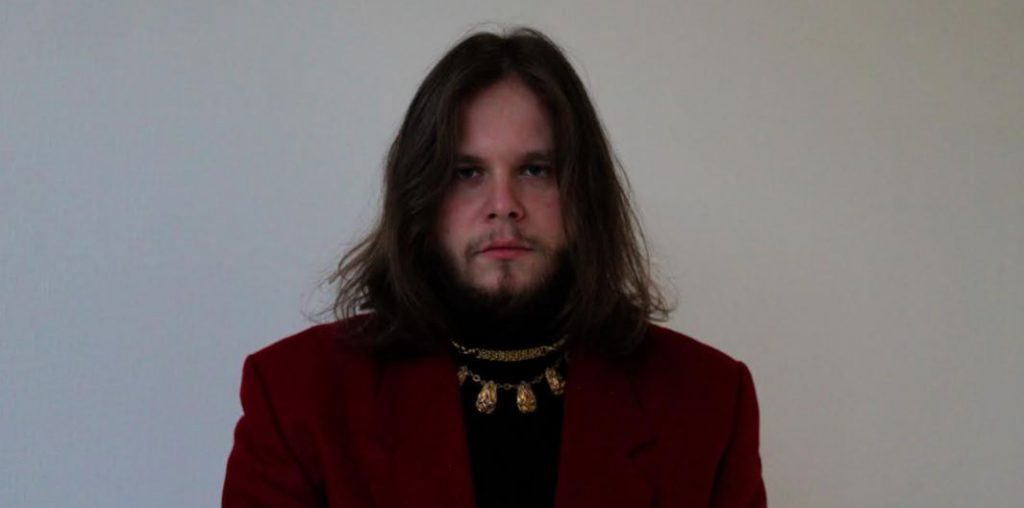Europe Film Festival U.K. spoke exclusively with Jordan Paul Rousseau
“Hi, first of all, congratulations, you are one of the winners of the Europe Film Festival U.K. What do you feel?”
Thank you! It still feels surreal to me! What an honor to be the winner in the category of the best soundtrack.
“What gave you the inspiration to compose the music for Burn the Time?”
Definitely the script. When the director (Rasim Asan) handed me the script for the first time, I was blown away. It is such a heartfelt story. Simple yet strong. I prefer composing based on the script rather than the rough cut. The visuals often distract me too much, whereas the script gives me the chance to use my imagination and in return write music that captures the essence of the scene. That way, instead of trying to match the music with the visuals, I focus on composing music that tells the audience more about the characters’ personalities, emotions, inner turmoil, etc.
The story of Burn the Time is very intimate and personal. We follow Benjamin, our protagonist, during his last day on earth. He is a troubled, heartbroken, and lonely character. That is why I decided to compose a score that could be performed by one person only. Because of that, the soundtrack consists solely of piano and synths. The score is Benjamin and Benjamin is the score. It portrays his highs and lows, his past, present, and future.
Another aspect of the script that intrigued me was the character of Benjamin’s deceased wife. Even though she is barely in the film, I wanted her presence to be felt and heard. I recorded a wonderful singer by the name of Nicole Susan Ponce Trelles. I actually sampled some recordings of her I made for another score of mine and reused it as the voice for Benjamin’s wife. Even though she is not physically there, her voice guides and comforts him throughout the film. The idea was to give it this lullaby kind of quality, like a mother comforting her newborn babe. These three aspects give the soundtrack its own unique sonic fingerprint.

“We are all here presumably partially because we LOVE cinema. How did your love for movies get sparked and what can we — as a community — do to help others discover a similar pleasure?”
My love for cinema, and soundtracks, in particular, started at a very young age. I remember hearing March of the Cards by Oliver Wallace for the very first time and instantly fall in love with it. That melody has been stuck in my head for over 20 years now. As a teenager, I discovered the works of composers such as James Horner, Thomas Newman, and Alan Silvestri. They really showed me what power music has, how it can change a scene and how it plays with one’s emotions. Nowadays, I am a big fan of composers such as Ryuichi Sakamoto, Trent Reznor, Johann Johannsson, Jonny Greenwood, Dan Romer, etc. I love how unconventional their take on soundtracks is. They defy the rules of traditional film scoring and dare to bring their own style to the table.
As a community, I think, we need to stay true to ourselves and create whatever we want to create. Break rules, dare to be different and most of all, enjoy what you are doing. I believe that the audience can sense the love and joy in one’s work. It is that same love and joy that can spark their own love in the process.

“What advice would you give to someone who wanted to have a life composing for film and tv?”
Try to be interested in other media, such as art, fashion, literature, editing, directing, color grading, psychology, etc. This will provide you with fresh and new ideas for your own music. Only being interested in the world of films and soundtracks is not enough.
This might sound obvious but listen. Not only to music but to literally everything around you. Be it a car racing by or the wind blowing. Most importantly, listen to what the director has to say. They are a great source of inspiration, as most of the time, they know the story of the film inside and out. Try to understand their language. Take the time to get to know them. Most of the time, directors do not speak the language of music. That is why it is important for you to decipher and understand what they actually mean when they ask you to write something sad or mysterious.
Yes, at the moment I am working on a couple of new short films, a tv series, documentaries, two full feature films, and some unique projects for theatre and dance. I cannot wait to share some of these new soundtracks! Every single one of them is unique. I have the pleasure of working with new, young talented directors who trust in my expertise. This gives me the opportunity to create these unique soundscapes and experiment with a vast array of different styles: from minimalist Philip Glass-esque piano pieces to a techno/goth-rock score.
First of all, I would like to thank my partner. She is truly amazing. Her support is what keeps me going when things get a little rough. I run all my music by her before I hand it over to the director. She is not afraid to be brutally honest with me. If the music sucks, she will tell me that it sucks. I would also like to thank my parents for their support and belief in me. They have spent many sleepless nights because of me. Finally, I would like to thank my great-grandmother for being such an inspiration even though she is not among us anymore.
Jordan’s Spotify






























